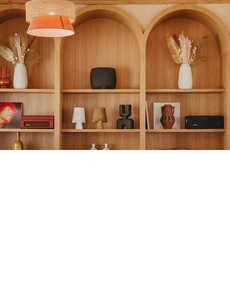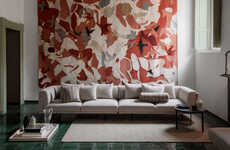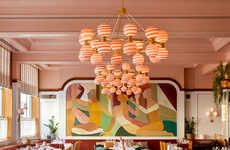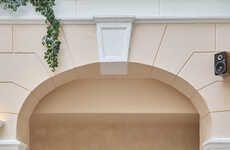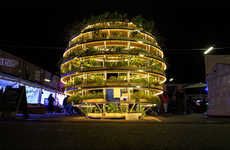
The 'Room Mate Hotel Giulia' is Inspired by Historic Italian Designs
Mishal Omar — November 29, 2016 — Art & Design
The Room Mate Hotel Giulia is located in Milan and its design offers a fusion of contemporary aesthetics with classic Italian architecture.
The hotel provides a unique juxtaposition to its surroundings, as it is placed in a city rich with history that is centuries old -- with much of its architecture and design being kept the same for many years. The modernized space was created by the interior designer Patricia Urquiola and was made with modern but eclectic furniture and art pieces, that are still steeped in the city's cultural history. The hotel provides lounge areas, a restaurant and cafes -- all of which follow a similar, eclectic Italian design.
The Room Mate Hotel Giulia is perfect for tourists who are looking to stay in Milan in a space that combines luxury with history.
The hotel provides a unique juxtaposition to its surroundings, as it is placed in a city rich with history that is centuries old -- with much of its architecture and design being kept the same for many years. The modernized space was created by the interior designer Patricia Urquiola and was made with modern but eclectic furniture and art pieces, that are still steeped in the city's cultural history. The hotel provides lounge areas, a restaurant and cafes -- all of which follow a similar, eclectic Italian design.
The Room Mate Hotel Giulia is perfect for tourists who are looking to stay in Milan in a space that combines luxury with history.
Trend Themes
1. Modernized Cultural Hotels - Disruptive innovation opportunity: Combining contemporary aesthetics with traditional architecture to create unique accommodations.
2. Fusion of Contemporary and Classic Design - Disruptive innovation opportunity: Creating spaces that blend modern and eclectic elements with cultural heritage.
3. Eclectic Italian Design - Disruptive innovation opportunity: Incorporating eclectic furniture and art pieces into hospitality spaces that reflect the local cultural history.
Industry Implications
1. Hospitality - Disruptive innovation opportunity: Redesigning hotel spaces to offer a distinct combination of luxury, history, and cultural immersion.
2. Interior Design - Disruptive innovation opportunity: Integrating modernized cultural elements into interior design to create unique experiences.
3. Tourism - Disruptive innovation opportunity: Attracting tourists with hotels that offer a fusion of contemporary amenities and traditional ambiance.
3
Score
Popularity
Activity
Freshness




